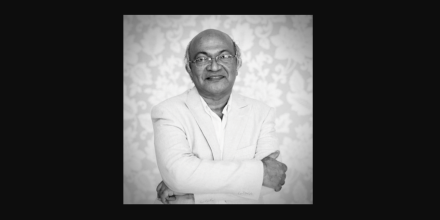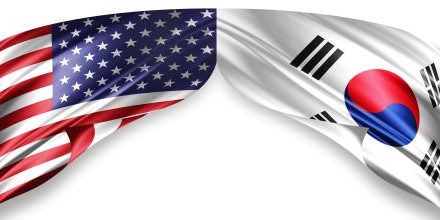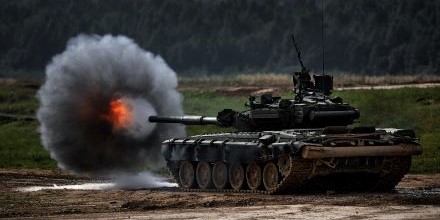Obituary: Professor Chaiwat Satha-Anand
Jul 2024 - News
By Toda Peace Institute Director, Kevin P. Clements Chaiwat Satha-Anand, aged 69, succumbed to cancer on June the 27th 2024. He was a wonderful human being, gentle caring and compassionate. He was a Thai Moslem which was unusual in strongly Buddhist Thailand. There is no doubt that this religious identity gave him a lifelong interest in how to negotiate all kinds of differences nonviolently. But it was the movements against Thai military dictatorships in the 1970s that gave him his passion for understanding how to resist repressive rule nonviolently. As he put it “I believe that violence is a problem you can overcome. I have learned that conflict is normal and natural, so I don’t aim to eradicate it. But violence is not normal. And a solution to conflict does not need to involve violence. There should be another option, which is peaceful means.” Chaiwat was the Director of the Thai Peace Information Centre which conducts studies and activism in relation to the Thai military and social issues. He was also Chairperson of the Strategic Nonviolence Commission in Thailand. His whole life was dedicated to nonviolence theory and activism, and he was particularly dedicated to understanding the peacebuilding traditions of Islam. For several years, he directed the International Peace Research Association's (IPRA) Commission on Nonviolence and he was an active member of the Asia Pacific Peace Research Association when I was its Secretary General. He was the 2012 winner of the El-Hibri Peace Education Prize. In 2003, he was nominated to head efforts to reduce violence in southern Thailand as a member of the National Reconciliation Commission. He delivered a key final report to the Royal Thai Government on how to de-escalate the violence. He was an excellent scholar as well as a NV practitioner. One of his important publications was “The Promise of Reconciliation? Examining Violent and Nonviolent Effects on Asian Conflicts,” (Transaction Publishers, 2016). More than all these achievements Chaiwat was a wonderful self-actualised human being. who embodied nonviolence as a way of life . He is sorely missed by all who had the good fortune to be in his company. He was a much respected Senior Research fellow of Toda until he retired because of ill health. He did not allow this illness to define him, however, and continued his work for peace until the end. Toda sends deepest commiserations to his partner, Dr Suwanna Satha Anand. Deepest condolences too, to all who worked with Chaiwat in APPRA, IPRA and the Centre for Non Killing in Hawaii. He was a wonderful example to all of us on how to embrace life and live it to the full. As a mark of his high reputation, the Prime Minister of Malaysia, Anwar Ibrahim, said “Even as I bid farewell to this remarkable soul, I find solace in the legacy he leaves behind. May his memory forever inspire us to walk the path of peace, seek understanding in the face of adversity, and build a world where harmony and respect reign supreme, ”RIP dear friend. Let’s honour his life by continuing his good work for a nonviolent Thailand in a nonviolent world.
Tuvalu holds public consultations on Falepili Union agreement
Jul 2024 - News
In Tuvalu, public consultations are underway to discuss the Falepili Union agreement with Australia.Pacific Leadership Network for Nuclear for Nuclear Non-Proliferation and Disarmament (APLN) and editor-in-chief of Global Asia. Under the arrangement, 300 Tuvaluans can permanently resettle in Australia every year. In return, Australia has a say in the country's security agreements. "Overall yes, it's a good thing for Tuvalu. The main concern is with how the actual migration opportunities play out for Tuvalu," said political researcher Dr Carol Farbotko from Griffith University. Listen to the full article on ABC Pacific (9 minutes) Image: Mary Star/shutterstock.com
Peril with little promise: The US presidential election and South Korea's dilemma
Jul 2024 - News
The US presidential election is being watched with trepidation in South Korea. Should President Joe Biden be re-elected, Seoul would likely see continuity in the relationship and a continued strong US-South Korea bilateral alliance. But a victory for Donald Trump is fraught with peril. He could throw the alliance into turmoil, try to make South Korea a front-line state in the US standoff with China, threaten overtures to North Korea, and demand South Korea increase defense cost-sharing and defense budget or face the withdrawal of US forces, writes Chung-in Moon.The situation is worrying for all sides of the political spectrum in Seoul, writes Chung-in Moon. Read the whole article in Global Asia Chung-in Moon is James Laney Distinguished Professor at Yonsei University, vice chairman of the Asia-Pacific Leadership Network for Nuclear for Nuclear Non-Proliferation and Disarmament (APLN) and editor-in-chief of Global Asia Image: patrice6000/shutterstock.com
National climate action plans must include military emissions
Jul 2024 - News
States may be about to miss a vital opportunity to include military emissions in national climate commitments. Read more from the Conflict and Environment Observatory. Article published 4 June 2024. Image: Evgeniyqw/shutterstock.com
RECNA essay competition for youth
May 2024 - News
The theme of the 3rd RECNA essay competition is: “What would you say to the leaders of countries that currently rely on nuclear weapons?” The Research Center for Nuclear Weapons Abolition, Nagasaki University (RECNA), with the support of the Nagasaki Shimbun, invites youth between the ages of 16 and 29 to submit an essay on a “Nuclear Weapons Free Future.” The conflicts in Ukraine and Gaza show no signs of abating, and the specter of nuclear war persists in various regions. Against this backdrop, the year 2024 has emerged as an international “election year” with potentially significant implications for nuclear policy. The presidential elections in the United States and Russia are the most prominent, but Japan is also grappling with the prospect of a general election. If you were to send a letter to a single leader of one nuclear weapons state, or the leaders of several or all of the nuclear weapons states, considering the worsening situation surrounding nuclear weapons, what would you ask them to do? We would like you to compose such a message, that you may address to the leader of one nuclear weapons state, or a state under the nuclear umbrella of a nuclear weapons state, like Japan, or the leaders of all or some of the nuclear weapons states and umbrella states. The grand prize winner and second prize winner will receive a commemorative plaque and prize money. 【SUBMISSION DEADLINE: July 31, 2024】 For more details, please click here.




